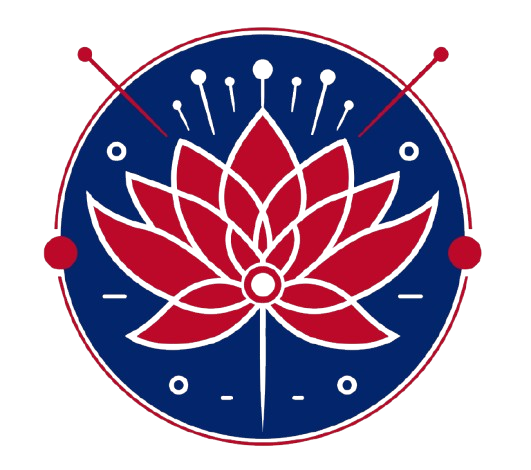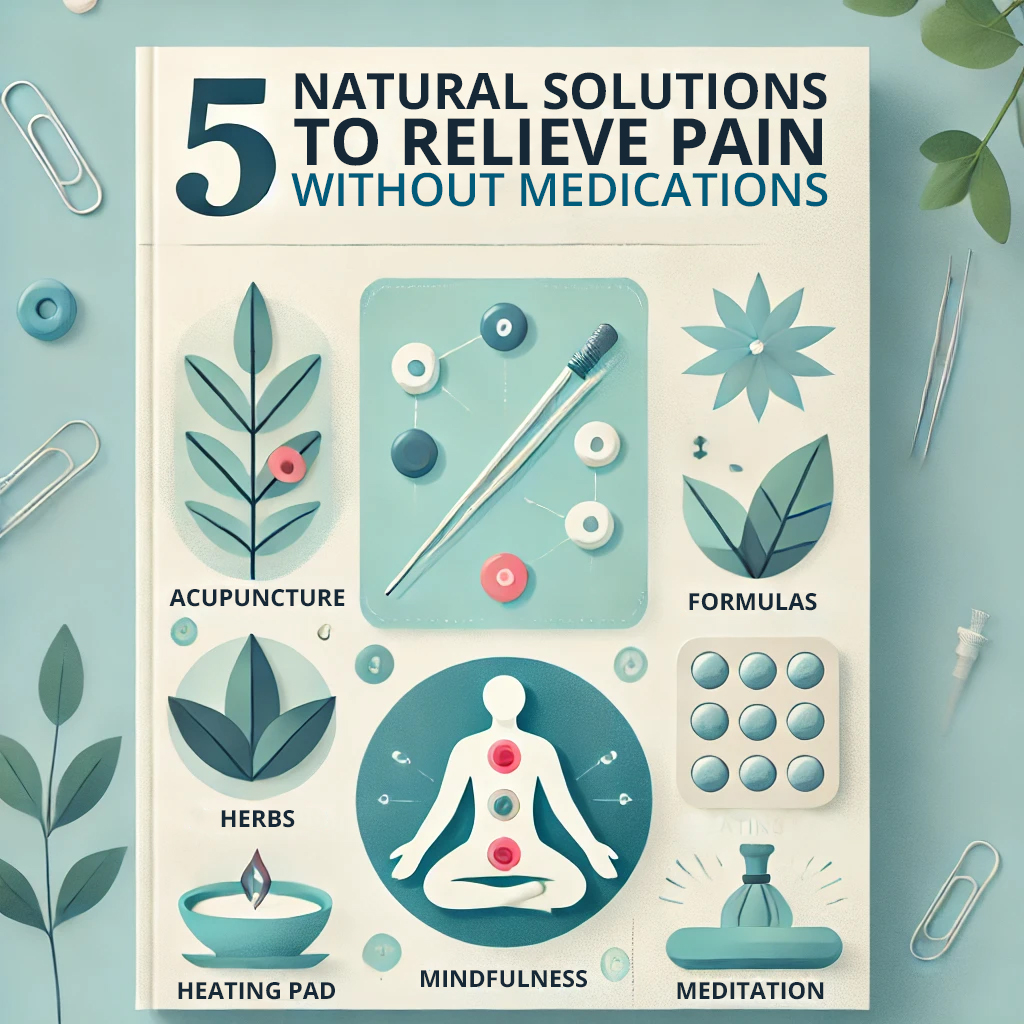You’re not alone in seeking a drug-free solution to your chronic pain, as millions of people in St. Petersburg and beyond are discovering that a combination of natural approaches can be a more effective and sustainable way to manage pain. Mindfulness meditation, for instance, can greatly reduce pain perception and emotional distress. Regular exercise, meanwhile, can lower pain levels and improve mobility. Acupuncture, herbal remedies, and nutrition also play critical roles in pain management. By exploring these alternatives, you’ll find a holistic approach that works best for you, and that’s just the beginning of your journey towards a pain-free life.
Key Takeaways
- Mindfulness meditation reduces pain perception and emotional distress, promoting relaxation and improving sleep-wake cycles.
- Regular exercise, such as low-impact activities like swimming and walking, effectively reduces chronic pain levels and improves physical function.
- Acupuncture targets specific acupoints to alleviate chronic pain, with 6-12 sessions yielding substantial improvements in pain relief and frequency.
- Herbal remedies like turmeric, ginger, and cloves offer natural pain relief, with turmeric’s curcumin comparable to NSAIDs in pain relief.
- An anti-inflammatory diet rich in fatty fish, berries, and leafy greens, combined with proper hydration, combats chronic pain and promotes overall health.
Mindfulness for Pain Management
Research has shown that nearly 75% of individuals struggling with chronic pain turn to mindfulness meditation as a natural pain relief solution. This holistic approach has been proven to notably reduce pain perception and emotional distress by activating brain regions involved in pain processing, leading to a decrease in pain intensity. In addition, regular mindfulness meditation can help alleviate stress and anxiety, common symptoms experienced by individuals struggling with insomnia, as seen in the sleep-wake cycle. By incorporating mindfulness techniques into your daily routine, you can enhance emotional regulation, an essential aspect of managing chronic pain and stress effectively. Regular mindfulness meditation has also been shown to reduce inflammation, additionally contributing to pain relief in various conditions. By promoting relaxation and proactive pain reduction, mindfulness practices can improve long-term management of chronic pain conditions. With mindfulness, you can take control of your pain management and improve your overall quality of life. By making mindfulness a part of your daily life, you can reduce your reliance on medications and embrace a healthier, more balanced approach to managing chronic pain.
Exercise for Natural Pain Relief
Now that you’ve explored the power of mindfulness in managing chronic pain, it’s time to get moving! Regular exercise is a powerful tool in reducing chronic pain levels and improving physical function. Low-impact activities like swimming, walking, and cycling have been shown to considerably reduce pain levels in individuals with conditions like arthritis and back pain. In fact, a 2020 study found that consistent exercise leads to lower pain levels, enhancing overall well-being and mobility among chronic pain sufferers. Exercise doesn’t just improve physical function; it also promotes relaxation and reduces muscle tension through stretching and yoga. Additionally, acupuncture has been recognized by the World Health Organization (WHO) for treating various conditions, including pain management. As you engage in physical activity, your body releases endorphins, which act as natural pain relievers, contributing to an overall decrease in pain perception. By incorporating a structured exercise regimen into your daily life, you’ll empower yourself to take control of your pain management and improve your quality of life. Get moving, and discover the natural pain-relieving benefits of exercise!
Acupuncture for Chronic Pain
Frequently, individuals struggling with chronic pain find themselves seeking alternative solutions to conventional medications, and acupuncture has emerged as a promising approach. Recognized by the World Health Organization (WHO) for its effectiveness in managing various chronic pain conditions, acupuncture offers a natural treatment option that can greatly improve your quality of life. By targeting specific acupoints to stimulate nerves and enhance blood flow, acupuncture can lead to approximately 70% improvement in pain relief. A 2018 meta-analysis confirmed its efficacy in managing chronic pain, demonstrating its potential to reduce the frequency and intensity of pain symptoms. In fact, research suggests that 6-12 sessions can lead to substantial improvements in chronic neck pain, and personalized treatment plans can yield faster results tailored care. This holistic approach not only alleviates pain but also helps improve overall well-being by addressing both physical and emotional aspects of health. Unlike conventional medications, acupuncture promotes healing and pain relief without unwanted side effects. By incorporating acupuncture into your natural pain relief plan, you can experience the benefits of a holistic approach that prioritizes your overall well-being.
Herbal Remedies for Pain Reduction
As you explore alternative approaches to managing chronic pain, you may find that herbal remedies offer a promising solution. These natural solutions have been used for centuries to reduce chronic pain and inflammation. Customized herbal formulations, like those used in Traditional Chinese Medicine, can target specific health needs and enhance overall well-being aligning with principles. Turmeric, for instance, contains curcumin, which has been shown to provide pain relief comparable to NSAIDs. Ginger, another popular herb, also possesses potent anti-inflammatory properties that can help alleviate discomfort.
Cloves, rich in eugenol, have been proven to effectively alleviate toothache pain and reduce discomfort during medical procedures. Boswellia, an herb used in Ayurvedic medicine, has been confirmed to ease pain and stiffness associated with osteoarthritis, making it a viable herbal option for chronic pain management. Feverfew, traditionally used for migraines and arthritis, has also been found to have potential anti-inflammatory and neuroprotective effects that may contribute to pain reduction.
Herbal formulations, such as those containing lavender and rosemary, have been supported by studies showing their effectiveness in reducing pain perception and promoting relaxation through their antioxidant and anti-inflammatory effects. By incorporating these herbal remedies into your pain management plan, you may find a natural and effective way to reduce chronic pain and improve your overall well-being.
Nutrition and Pain Management
During your journey to manage chronic pain, you’ve likely explored various herbal remedies and alternative therapies. But have you considered the impact of nutrition on your pain management? The food you eat can either exacerbate or alleviate your discomfort. Additionally, incorporating acupuncture into your wellness routine can strengthen your immune response and reduce inflammation, leading to improved digestive health and reduced pain Digestive Health Benefits. By making informed choices, you can harness the power of nutrition to reduce pain and inflammation.
Eat an anti-inflammatory diet: Focus on fatty fish, berries, and leafy greens to reduce pain and inflammation.
Boost antioxidant intake: Fruit and vegetables rich in antioxidants can combat oxidative stress and alleviate chronic pain symptoms.
Stay hydrated: Proper hydration is essential to prevent muscle cramps and joint pain.
Limit processed foods and sugars: Reduce inflammation by cutting back on processed foods and sugars, and try incorporating herbs like turmeric and ginger for their anti-inflammatory effects.
Frequently Asked Questions
What Is the Most Powerful Herb for Pain?
As you explore natural pain relief, you’re likely wondering what the most powerful herb is for pain. While several options stand out, turmeric, with its potent curcumin, takes the lead, offering pain relief comparable to NSAIDs and empowering your body to heal naturally.
What Is the Most Natural Painkiller?
You’ll find fantastic flexibility in fighting pain with fervent fervor, as turmeric, touted as the most natural painkiller, tackles inflammation and discomfort with its potent curcumin, a potent alternative to pharmaceuticals, providing profound pain relief.
What Is the Best Natural Supplement for Pain?
When seeking the best natural supplement for pain, you’ll find turmeric, ginger, boswellia, cloves, and capsaicin stand out for their potent anti-inflammatory and analgesic properties, offering effective, holistic alternatives to traditional pain management methods that promote overall well-being.
What Is the Fastest Home Remedy for Pain?
Notably, 75% of people experience chronic pain; you can find quick relief with heat therapy, as it increases blood flow and relaxes muscles, providing instant comfort for conditions like arthritis and muscle strains.
Conclusion
You’ve taken the first step towards a life free from medication. Now, it’s time to take control of your well-being. Did you know that 80% of people turn to alternative therapies to manage pain? You’re part of a growing movement that’s rewriting the rules of pain management. By incorporating these 5 natural pain relief solutions into your daily routine, you’ll be saying goodbye to medications for good. Embrace this new chapter, and watch your body and mind transform for the better.
Your Health Journey Starts Here
At Elite Care Acupuncture & Alternative Medicine, we’re focused on helping you achieve optimal health through individualized, holistic treatments. Whether you’re seeking relief from pain, stress management, or exploring natural health options, our skilled team is here to support you.
Connect with Us:
Address:
1105 7th Avenue North, Saint Petersburg, FL 33705
Phone: +1 (727) 606-8700
Website: www.EliteCare.clinic



